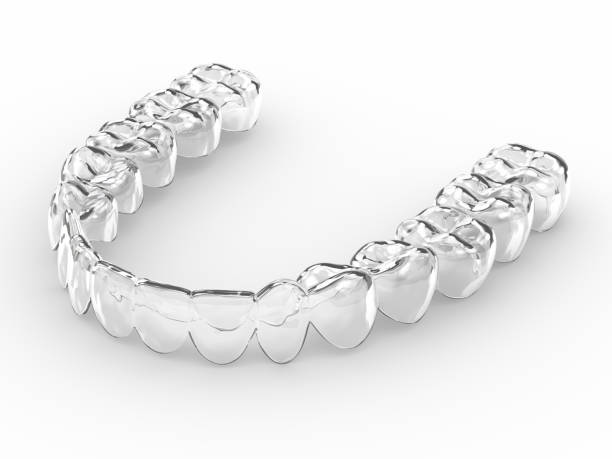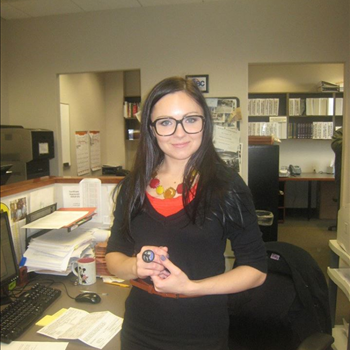Right Now
Is Invisalign An Option For Older Adults?

Invisalign is an effective teeth straightening tool. However, like with most things in life, there are pros and cons.
Here are the top advantages and disadvantages of Invisalign teeth straightening for adults that you should be aware of.
The Benefits of Invisalign For Adults
1. Clear and invisible
One of the main reasons Invisalign evaluations for older adults are so excellent is the transparency of the trays - other people can hardly know you're using them. However, Invisalign employs transparent, mouthguard-like trays that fit snugly over your teeth. Invisalign's invisibility boosts your confidence at work or in public.
2. Easily removable
Because Invisalign is removable, you do not have to refrain from eating particular foods while undergoing treatment. You'll need to remove your trays whenever you eat, but you won't have to worry about avoiding certain meals.
The ability to remove trays promotes dental health. Instead of brushing and flossing around metal brackets, you need to:
Remove your trays.
Brush and floss as normal.
Place your trays back in.
3. High efficiency
Invisalign can quickly and effectively fix many of the most prevalent alignment concerns in adults. Do you have any little gaps between your teeth? Invisalign handles this with ease. Do you have a small overbite? That is something Invisalign can fix. Are any of your teeth overcrowded? Let Invisalign produce the appropriate amount of space.
4. No age limits
One big advantage of Invisalign is that there is no maximum age. You can qualify for Invisalign whether you are a young adult or an older adult, and sometimes even a senior.
The Cons of Invisalign For Adults
1. Needs a high level of commitment
One of the most crucial things to understand about Invisalign is that you must be committed to the treatment. For optimal results, wear your Invisalign trays for 20-22 hours each day. People may forget to wear their trays on a daily basis because of their hectic schedules or plain carelessness.
However, not wearing your trays for the specified duration might severely slow down your therapy. As a result, removability is a two-edged sword: it provides for greater diet flexibility while also slowing down treatment.
Additionally, it is critical to constantly remove your trays before consuming any form of food. Eating without removing your trays might harm them. Replacing a broken tray can involve additional charges.
Individuals who listen to and follow their orthodontist's advice will receive better, more successful treatment.
2. Requires further oral hygiene
Another disadvantage of Invisalign is that it demands the wearer to practice better dental hygiene than is often assumed. An improved degree of oral hygiene entails being concerned about your mouth and Invisalign trays.
Brush your teeth (or at least rinse your mouth with water) before reattaching your trays. If you place your tray in quickly after eating, it may trap food and other dirt beneath it. This debris can speed up bacterial activities, increasing the risk of tooth decay and gum disease.
You will also need to take care of your Invisalign trays. The most effective Invisalign cleaning procedure is:
Rinse the trays with water.
Brush the trays gently with a toothbrush.
Rinse your trays again.
You may also soak them in a denture cleanser for a brief time. Regardless of the approach, aim to clean your trays every day.
3. Has limitations
One of the final things to consider before getting Invisalign is that it has restrictions. Any orthodontic procedure, including conventional braces and Invisalign, requires healthy teeth and gums. If you have mild tooth decay or gum disease, you should treat it before starting Invisalign. More serious oral health conditions, such as periodontal disease, which causes tooth loss, may prevent you from receiving treatment. Invisalign cannot correct all alignment difficulties. These difficulties often include:
A very crooked tooth;
A strong overbite;
Large gaps in teeth.
Orthodontists can sometimes do "hybrid" treatments. This treatment includes using an alignment instrument other than Invisalign. Once the more significant issue is fixed, your orthodontist can transition you to Invisalign. However, if you have good oral health and no major alignment difficulties, Invisalign may be the ideal straightening treatment for you.
More Posts



















Map
Amelia Grant
Get DirectionsAmelia Grant
-
31-57 37th St
Long Island City, New York 11103
United States - 6462709836
Report This Post
Please complete the following requested information to flag this post and report abuse, or offensive content. Your report will be reviewed within 24 hours. We will take appropriate action as described in Findit terms of use.


